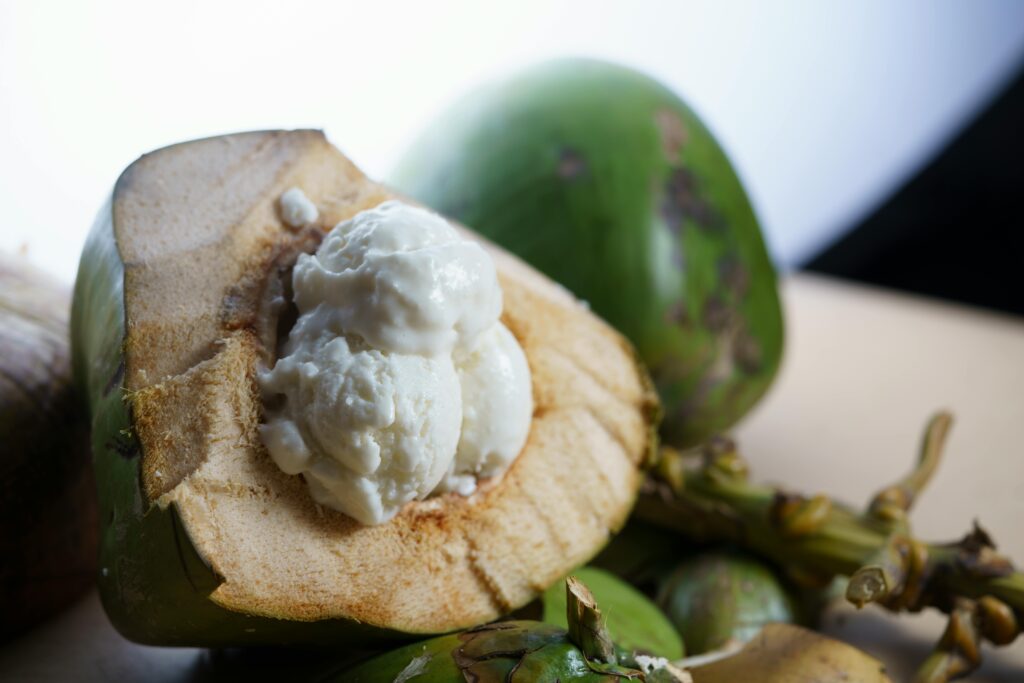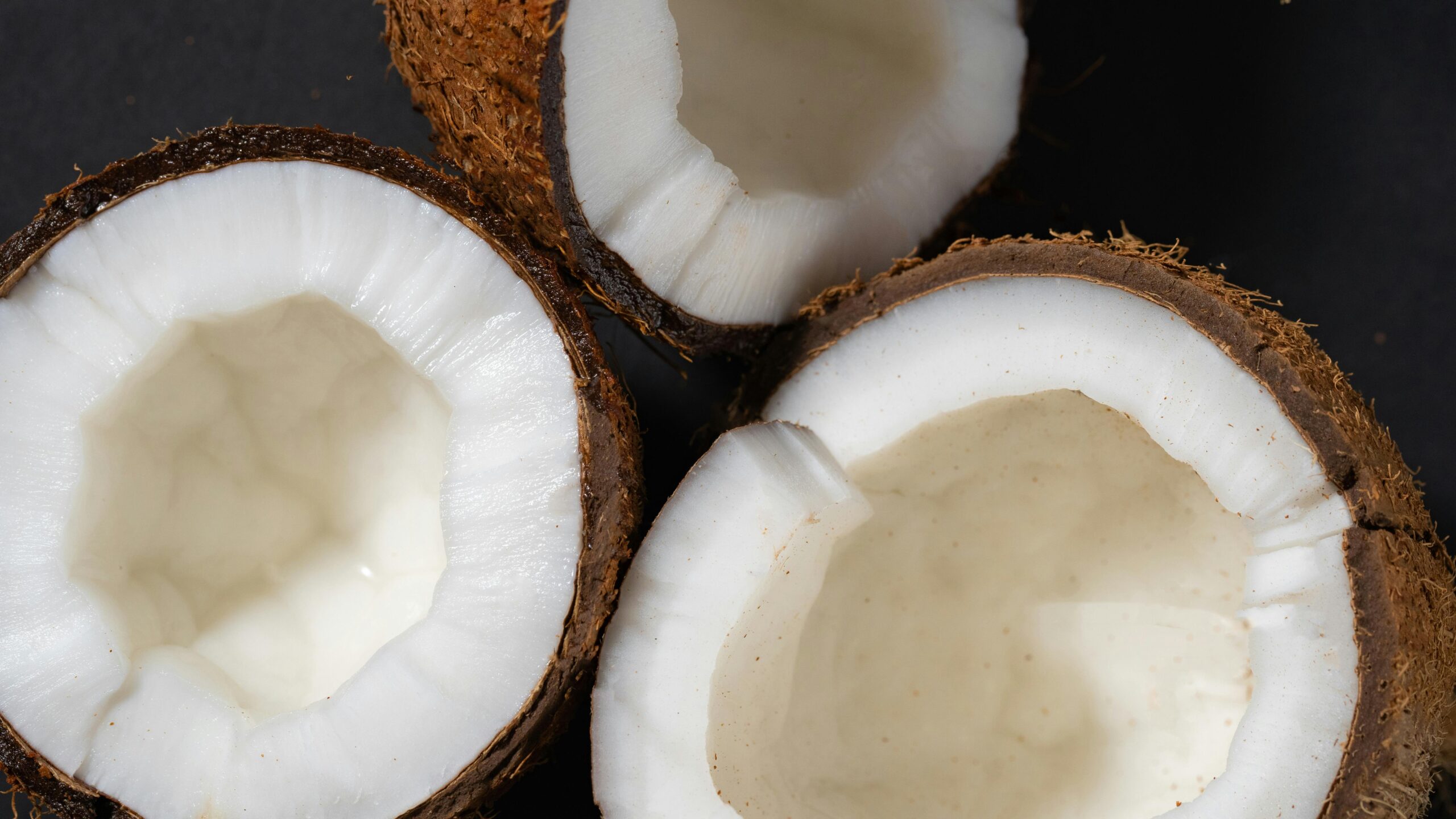Coconut water, the clear liquid found inside young green coconuts, is increasingly popular for its refreshing taste and notable health benefits. Packed with essential nutrients and electrolytes, it’s a go-to natural beverage for hydration, nutrition, and wellness support. In this article, we’ll explore the numerous health benefits of coconut water, including its role in hydration, cardiovascular health, kidney support, and athletic performance.
For more Health Related information : Eat Healthy Stay Fit.
Natural Hydration and Electrolyte Balance.

Coconut water is often celebrated for its impressive hydration properties, attributed to its high electrolyte content, particularly potassium, sodium, and magnesium. These electrolytes help replenish the body’s fluid levels, making coconut water an excellent choice for rehydration, especially after exercise or during dehydration. Unlike plain water, coconut water provides a balance of electrolytes that mimic the body’s natural fluids, helping maintain hydration and prevent conditions like heat exhaustion.
Studies suggest that coconut water is as effective as commercial sports drinks for rehydrating after physical activity. However, coconut water is a low-calorie alternative, free from added sugars and artificial ingredients commonly found in sports drinks, making it an appealing choice for those watching their caloric intake.
Potassium-Rich Support for Blood Pressure Regulation.
Coconut water is particularly rich in potassium, an essential mineral that helps manage blood pressure by counteracting the effects of sodium in the body. Potassium assists in dilating blood vessels and reducing pressure on artery walls, thereby supporting cardiovascular health.
A cup of coconut water contains roughly 600 milligrams of potassium, which surpasses that of many other beverages and supplements. This potassium-rich profile makes it beneficial for people managing hypertension or looking to maintain normal blood pressure levels. Research indicates that a potassium-rich diet is effective in reducing the risk of cardiovascular diseases, including heart attacks and strokes.
A Source of Vital Nutrients for Overall Health.

Apart from potassium, coconut water also provides calcium, magnesium, and small amounts of phosphorus, making it a nutrient-dense beverage. Calcium supports bone health, while magnesium aids muscle relaxation, making coconut water beneficial for people who engage in regular physical activity. It’s also low in carbohydrates and calories, with natural sugars for a quick energy boost without the sugar spikes associated with sugary drinks.
Assistance in Kidney Health and Stone Prevention.
Coconut water is often recommended for kidney health due to its ability to aid in flushing out toxins and supporting urinary health. The beverage’s high potassium and magnesium content may help reduce the risk of kidney stones by preventing calcium oxalate crystals from sticking together, which is essential in the kidney stone formation process.
Furthermore, studies suggest that drinking coconut water could support kidney function by enhancing the body’s natural detoxification process. Regular consumption may lower the risk of kidney stones, although people with certain kidney conditions or those on potassium-restricted diets should consult a medical expert before increasing their intake.
Blood Sugar and Diabetes Management.

For people managing diabetes or blood sugar levels, coconut water can be a better option than many sugary beverages. It contains low levels of natural sugars and has a low glycemic index, meaning it causes a slower rise in blood sugar compared to other sweetened drinks. The magnesium content in coconut water also plays a role in blood sugar regulation, supporting insulin sensitivity.
A 2015 study found that coconut water could help reduce blood glucose levels in animals with diabetes, suggesting potential benefits for humans as well. However, it’s important to choose unsweetened coconut water and avoid products with added sugars, which can raise blood sugar levels.
Supporting Skin Health and Hydration.

The hydration benefits of coconut water aren’t limited to internal health. Its high water content and nutrient profile make it a valuable addition to skincare routines as well. When applied topically, coconut water may have a soothing effect on skin due to its cooling and hydrating properties, which help maintain a healthy skin barrier and combat dryness.
Due to its natural sugars and electrolytes, coconut water can be used as a base for DIY skincare products or as a mild, refreshing toner to keep skin moisturized. Its antioxidants may also help reduce oxidative stress, contributing to healthier, glowing skin.
Exercise Performance and Muscle Recovery.

Coconut water’s electrolyte-rich composition makes it an ideal beverage for athletes or individuals engaged in high-intensity exercise. Electrolytes play a vital role in muscle function and preventing cramps, while the natural sugars in coconut water offer a quick energy boost during or after workouts.
Some studies suggest that coconut water may even improve exercise performance and reduce exercise-induced oxidative stress. As a natural alternative to sugar-laden sports drinks, coconut water provides essential hydration without the added calories, promoting faster recovery while keeping sugar intake low.
Weight Management and Low-Calorie Hydration.

For those seeking a low-calorie, hydrating beverage, coconut water is an excellent choice. Unlike sugary drinks and sodas, coconut water is low in calories, carbohydrates, and sugars, making it suitable for people watching their weight. Drinking coconut water can aid in satiety, keeping the body hydrated and reducing unnecessary cravings.
A typical serving of coconut water contains around 45-60 calories, making it a smarter choice than calorie-dense sodas and other high-sugar beverages.
Reducing Risks of Dehydration and Electrolyte Imbalance.

Coconut water’s unique composition, rich in potassium, sodium, and other electrolytes, makes it ideal for preventing dehydration, especially in hot climates or during illness. It’s particularly useful in maintaining electrolyte balance in cases of dehydration due to diarrhea, vomiting, or excessive sweating.
Rehydrating with coconut water is an effective way to restore essential minerals without overloading on sodium or artificial ingredients, which can be especially beneficial for people prone to dehydration or electrolyte imbalance.
Natural Alternative to Sugary and Artificially Flavored Beverages.
Coconut water stands out among natural drinks due to its mild, refreshing flavor and lack of artificial additives. Unsweetened coconut water can be enjoyed plain or used in various recipes, from smoothies to soups. Its naturally low sugar and sodium levels make it a safer choice for those aiming to avoid added sugars and excess sodium.
By opting for natural coconut water, people can steer clear of synthetic ingredients, preservatives, and artificial colors often found in commercially available beverages.
Potential Risks and Considerations.
While coconut water offers a range of health benefits, it’s important to be aware of a few considerations:
- High Potassium Content: Although potassium is beneficial, excessive intake can cause hyperkalemia (high potassium levels), which may lead to heart complications. People with kidney issues or those on potassium-restricted diets should consume coconut water in moderation.
- Added Sugars: Some coconut water products may contain added sugars or flavorings, which can negate the health benefits. Choosing unsweetened or pure coconut water is crucial for maximizing its health benefits.
- Caloric Intake: While low in calories compared to other beverages, overconsumption can add up, particularly for those managing their calorie intake for weight loss.
Allergies and Individual Sensitivities.
Coconut allergies, although rare, can occur. Those allergic to coconut should avoid coconut water and other coconut products. Signs of an allergy can include itching, swelling, or difficulty breathing. Always consult a medical expert if you suspect an allergy.
Coconut Water vs. Coconut Milk: Key Differences.

Coconut water and coconut milk are often confused, but they differ significantly. Coconut water is the clear fluid found inside young coconuts, while coconut milk is made from the grated flesh of mature coconuts mixed with water. Coconut milk is creamier, higher in calories, fats, and often used in cooking, whereas coconut water is a hydrating beverage with a low-calorie profile.
Choosing the Right Coconut Water.

To maximize the health benefits of coconut water, opt for unsweetened and organic options whenever possible. Avoid coconut waters with added colors or artificial ingredients, as these may dilute the nutritional benefits. Some products are also sodium-enriched, so it’s essential to check the label if sodium intake is a concern.
Conclusion: A Nutritious Beverage for Wellness.
Coconut water offers a refreshing, nutrient-dense alternative to traditional sugary beverages, making it suitable for people looking to support their hydration, manage blood pressure, enhance exercise performance, and promote kidney health. With its natural balance of electrolytes and hydrating properties, coconut water is a versatile wellness beverage that aligns with many health goals.
From aiding hydration and supporting cardiovascular health to helping prevent kidney stones, coconut water’s unique nutrient profile makes it a valuable addition to a balanced diet. Whether enjoyed after exercise, as part of a meal, or simply for a refreshing drink, coconut water can help people stay hydrated, naturally nourished, and in tune with their wellness goals.




